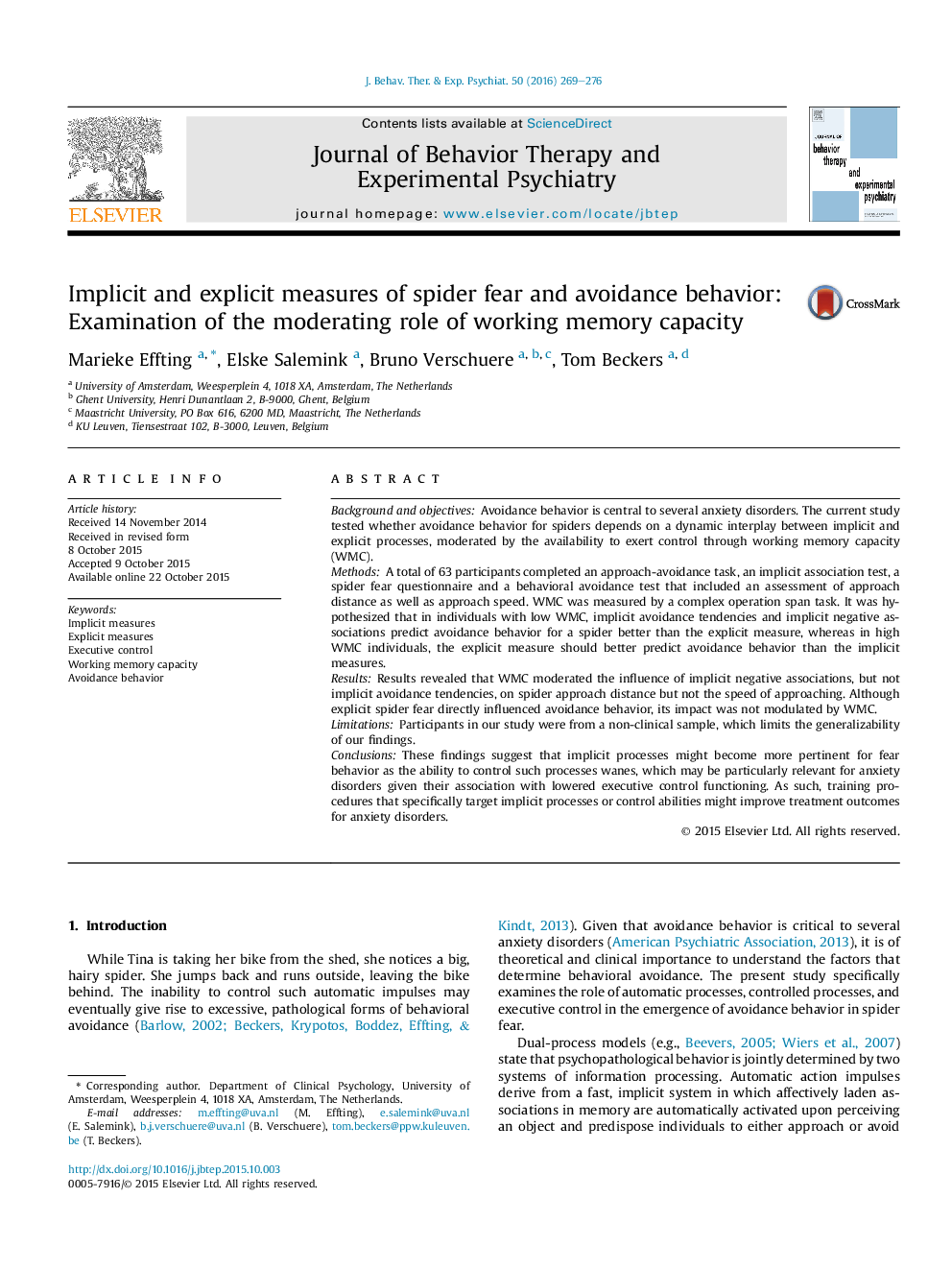| Article ID | Journal | Published Year | Pages | File Type |
|---|---|---|---|---|
| 910308 | Journal of Behavior Therapy and Experimental Psychiatry | 2016 | 8 Pages |
•Dual process models state that implicit and explicit processes influence behavior.•Working memory capacity (WMC) is thought to moderate their impact on behavior.•We examined the moderating role of WMC in avoidance behavior for spiders.•WMC moderated the impact of implicit associations on distance kept to spider.•No moderating role of WMC was found for action tendencies or explicit associations.
Background and objectivesAvoidance behavior is central to several anxiety disorders. The current study tested whether avoidance behavior for spiders depends on a dynamic interplay between implicit and explicit processes, moderated by the availability to exert control through working memory capacity (WMC).MethodsA total of 63 participants completed an approach-avoidance task, an implicit association test, a spider fear questionnaire and a behavioral avoidance test that included an assessment of approach distance as well as approach speed. WMC was measured by a complex operation span task. It was hypothesized that in individuals with low WMC, implicit avoidance tendencies and implicit negative associations predict avoidance behavior for a spider better than the explicit measure, whereas in high WMC individuals, the explicit measure should better predict avoidance behavior than the implicit measures.ResultsResults revealed that WMC moderated the influence of implicit negative associations, but not implicit avoidance tendencies, on spider approach distance but not the speed of approaching. Although explicit spider fear directly influenced avoidance behavior, its impact was not modulated by WMC.LimitationsParticipants in our study were from a non-clinical sample, which limits the generalizability of our findings.ConclusionsThese findings suggest that implicit processes might become more pertinent for fear behavior as the ability to control such processes wanes, which may be particularly relevant for anxiety disorders given their association with lowered executive control functioning. As such, training procedures that specifically target implicit processes or control abilities might improve treatment outcomes for anxiety disorders.
